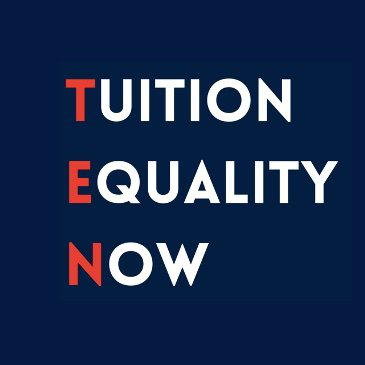Georgetown University graduate students are calling for a tuition reduction to match the 10% tuition reduction granted to undergraduate students in an open letter sent to Georgetown University’s Board of Directors.
Tuition Equality Now, a student-led coalition, began circulating the letter Jan. 27, calling for a 5% tuition reimbursement from the fall semester, a town hall meeting with the Board of Directors by Feb. 12 and transparent communication concerning future financial aid decisions that directly affect students.

students are calling for a tuition reduction to match the 10%
tuition reduction granted to undergraduate students in an open letter.
Graduate students are paying thousands to utilize Georgetown’s resources and networks that are now unavailable or limited because of the COVID-19 pandemic, and they therefore deserve the same tuition reduction as undergraduate students, the letter states.
“Georgetown University’s decision to provide unequal discounts is unjust, indefensible, and ultimately demonstrates that the university values undergraduate students’ contributions to and role in the university’s community more than that of graduate students,” the letter reads.
As of Feb. 3, the letter has garnered over 400 signatures from students, alumni and professors who have pledged to withhold future donations and participation in alumni events if the coalition’s demands are not met.
TEN is calling for a 5% tuition reimbursement for last semester and a 10% tuition discount for this semester after undergraduate students received a 10% discount for both semesters. The reimbursement would be a life-changing amount of money for graduate students who rely heavily on loans, according to Nicole Dan (GRD ’21), a coordinating member of TEN.
“For me, that means not having to have as much out in loans, being able to pay for rent, being able to pay for medicine, being able to pay for food,” Dan said in a phone interview with The Hoya. “I know that there are people who are going to be using this money to pay for therapy. I know that for some people this is like several months of food; this is like a year or two of food expenses, so this is huge.”
While undergraduate students were offered a 10% tuition discount for the fall semester, graduate students received a 5% tuition discount and the proposal of hybrid classes. However, Georgetown never implemented the hybrid system because of the severe impact of COVID-19 on the Georgetown neighborhood.
The university’s spring plan again proposes a hybrid environment with some in-person learning courses available for select graduate programs. The plan mentions the potential for creating graduate-only spaces on campus, provided that local health and safety regulations permit. The website states that this plan is tentative and may be altered under changing circumstances, depending on the course of the pandemic.
The university’s reluctance to offer an adequate tuition reduction is disruptive and harmful to international students already facing additional struggles during the COVID-19 pandemic, according to Fernanda Estrada (GRD ’21).
“Without COVID it is extremely expensive for us to come, but that is our decision. We decided, we took the loan, we chose to make the investment to come here,” Estrada said in a phone interview with The Hoya. “Now, there is this crisis in the middle of our program, and it becomes even more expensive for us to be here, to be in the U.S.”
In addition to inadequate tuition reduction, graduate students have not received proportionate benefits from pandemic-specific financial aid, including the Coronavirus Aid, Relief, and Economic Security Act, according to the letter.
The CARES Act allocated $14 billion in funding to colleges and universities to provide support during the COVID-19 pandemic. Half of each institution’s allocated funding must contribute to emergency student financial aid grants. The remaining portion can be used for other expenses that relate to campus disruptions caused directly by the pandemic.
The university distributed a smaller portion of CARES Act grants to graduate students because they could qualify for greater amounts of aid and loans in comparison to undergraduate students, according to a university spokesperson.
“As an institution committed to cura personalis, care for the whole person, with a deep belief that we are enriched and strengthened by each and every member of this community, we are all compelled to respond and support our community through this crisis,” the spokesperson wrote in an email to The Hoya. “This crisis has impacted all of us in profound ways, and we strive to provide our graduate students, as well as the rest of our student body, with resources, from financial support, to career guidance, to mental and telehealth services.”
A tuition reduction would provide necessary relief for graduate students who are dealing with more responsibilities than usual during this semester, according to Anna Downs (GRD ’21), a TEN coordinator.
“There are so many students that are taking care of family members who are sick, taking care of children, who are having a very hard time juggling multiple tasks with childcare and school and work,” Downs said in a phone interview with The Hoya. “So I think there’s just a lot of stress that’s happening that could be alleviated with just a little more acknowledgement of the pressures and crises that graduate students are going through.”















